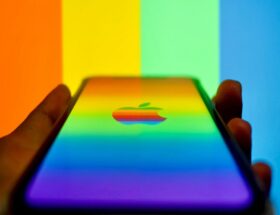
Apple has responded to the iPhone 16 ban in Indonesia by offering to increase its manufacturing investment in the country tenfold, from $10 million to $100 million. Update: Indonesia's government has said it expects more – see end of article.
The Indonesian government responded aggressively when the Cupertino company fell short of its promised spending in the country, and Apple appears keen to resolve the matter …
iPhone 16 Ban
Indonesia followed the example successfully implemented by India: requiring Apple to move some of its manufacturing business to the country so it could freely sell its products there.
In India's case, Apple was not allowed to open online or physical retail stores in the country until it had established significant iPhone assembly capacity there. Partly in response, India is now Apple's second-largest manufacturing hub after China.
In Indonesia, Apple offered a compromise in which it would invest the equivalent of $109 million in developer academies in the country, as well as invest $10 million in manufacturing over the next two years. This was accepted, but the government said Apple had failed to meet developer spending, instead investing only $95 million.
The government responded by banning sales of iPhone 16 models in the country. The government also banned the sale of Google Pixel phones in the country for the same reason.
Apple to Boost Manufacturing from $10M to $100M
Bloomberg reports that Apple has now offered to boost its planned investment in local manufacturing from $10 million to $100 million if the government lifts the ban on iPhone sales.
Under the proposal, Cupertino-based Apple would invest nearly $100 million in Southeast Asia’s largest economy over two years, said the people, who asked not to be identified because they were not authorized to speak publicly. Apple’s previous investment plan of about $10 million would have included an accessory and component factory in Bandung, southeast of Jakarta. […]
By proposing to invest in the country, Apple is seeking unfettered access to Indonesia’s 278 million consumers, more than half of whom are under 44 and tech-savvy.
It is unclear what form the investment might take. This could include asking Foxconn to set up iPhone and iPad assembly plants in the country, or having other supply chain partners manufacture components for Apple devices.
Update: The government has previously indicated the latter approach would be acceptable, but said through the Antara news agency that it expects more than $100 million.
“From the government's perspective, of course we want this investment to be bigger” This was stated on Thursday by the ministry's spokesman Febri Hendry Antoni Arif.
This is not the first time that Apple has had to guarantee investments in a country to get the right to sell iPhones there: the same thing happened in 2017.
Photo of Jakarta by Dias ^ on Unsplash










